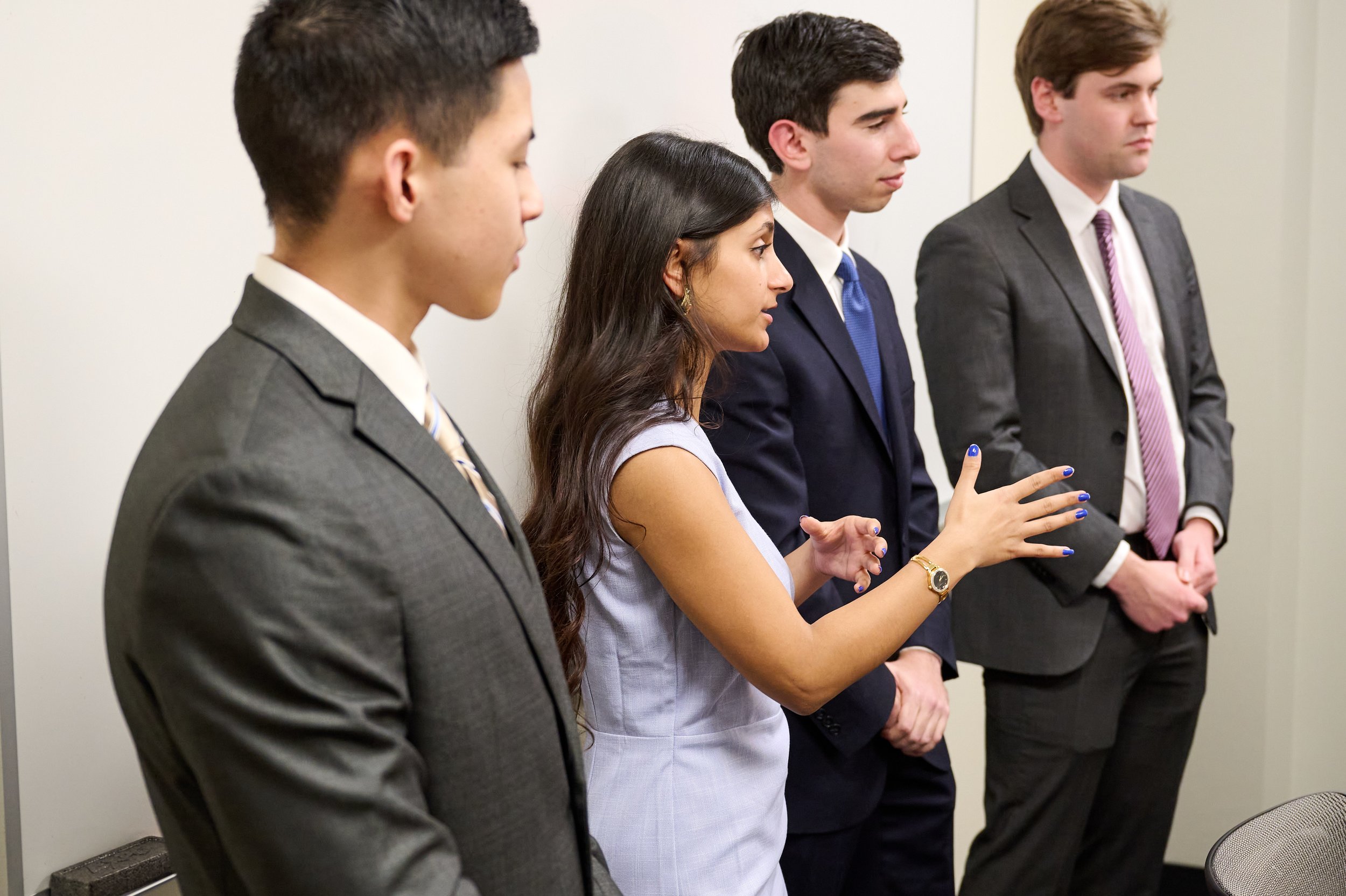About
Participation in the Marshall International Case Competition is both an honor and a supreme challenge. Solving real world business problems under the stressful conditions and strict deadline requirements of the competition is a test of each individual’s creativity and problem-solving abilities. These students, tomorrow’s business leaders, will be better prepared to meet the challenges of a rapidly changing global business environment.
THE TEAMS
Twenty top-ranked international and U.S. business schools are invited to participate each year. Invited schools select a team of four undergraduate students and a faculty advisor to attend the competition. Team members should possess expertise in a wide range of business disciplines from finance, marketing, economics and accounting, to international issues, technology, quantitative thinking, and management.
The Competition
The competition consists of two cases; a short case (5 hours) and a long case (24 hours). Teams will be presented with a business case study on the afternoon of Tuesday, February 16th, and have 5 hours to prepare a solution and present it to a panel (short case). On Thursday morning, February 19th, teams will be presented with the long case, and have approximately twenty-four hours to research, analyze, and develop a set of action plans, make recommendations, and prepare their presentations. Preliminary Presentations are made on Friday, February 20th After these preliminary presentations, there will be a challenger round, providing an additional opportunity for teams to showcase their skills and strategies. Finalists from the preliminary and challenger rounds will present on Saturday, February 21st.
The Criteria
Teams are judged by a panel of industry experts including CEOs, top management executives and consultants.
All team members must actively participate in the presentation phase, which is followed by a question and answer period. Judges base their decisions on such criteria as the depth and comprehensiveness of analysis, relevance, originality, persuasiveness and overall presentation.
Competition rules allow textbooks, notes, and passive use of the Internet for research purposes. Discussion of the case with outside sources, faculty or advisors is not permitted.




